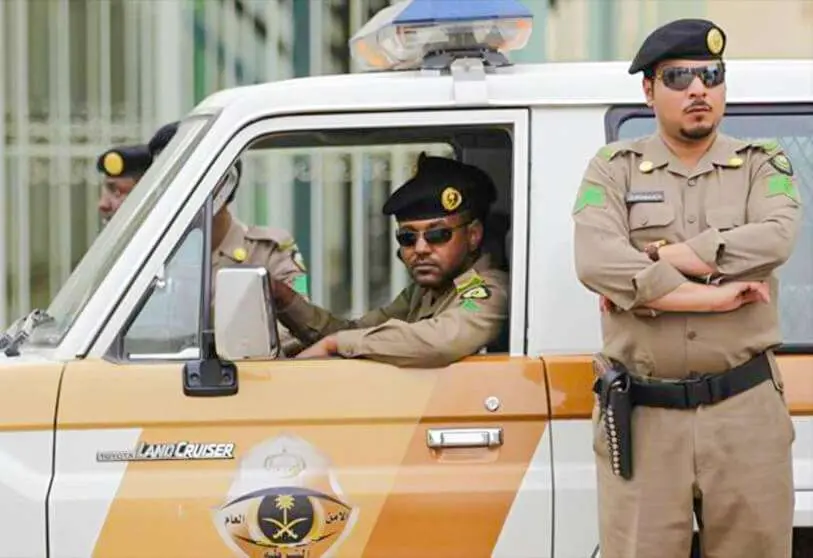Saudi Arabia puts money laundering in its sights

With the announcement of a police operation that resulted in six arrests and the seizure of 1.06 million US dollars, Saudi Arabia has scored another victory in the battle against money laundering.
The Arab kingdom's public prosecutor's office made the results public on Monday morning, 12 September, along with a message of commitment to the fight against money laundering, which is often used by international terrorist networks. The dismantled gang, made up of one Saudi national and five other people of Arab origin, adds to the list of organisations dismantled by the Saudi judiciary in recent months, according to a statement published by the local media Al-arab.
The Saudi judiciary, which handed down its verdict on Monday, sentenced a Saudi national to 10 years in prison and a ban on leaving the country for a further 10 years. The other convicted persons of unspecified Arab nationalities were sentenced to 25 years' imprisonment and deportation upon completion of their sentences.
قررت الأنظمة المعنية حماية رفيعة للاقتصاد الوطني وسلامة أمنه، بحظر الجناية على الأصول أو الموارد الاقتصادية أو الممتلكات أيًّا كانت قيمتها أو نوعها؛ ومن ذلك ما نص عليه نظام مكافحة غسل الأموال من عقوبات مشددة في هذا الشأن.#النيابة_العامة pic.twitter.com/NaTZA67zHa
— النيابة العامة (@bip_ksa) September 11, 2022
Already in February 2022, the Saudi judiciary sentenced a group of 11 individuals to 52 years in prison on similar grounds, albeit with a much higher seizure amount than this September: USD 2.67 million.
The Cooperation Council for the Arab States of the Persian Gulf, and Saudi Arabia through it, is a member of the FATF (Financial Action Task Force), an international body set up in 1989 by the G8 to develop standards and promote measures among states to combat money laundering and the financing of terrorist organisations.
In its 2018 assessment, the FATF reached some conclusions about the state of the fight against money laundering in the Saudi kingdom. Despite having a relatively small financial system and tightly controlled access to the economy, the overall situation would be one of "mixed risk" mainly due to terrorist groups, both inside and outside the country, as well as conflicts in the region. According to the FATF's findings, citing IMF sources, the gross domestic product generated by illegal activities in Saudi Arabia ranges from 12 to 32 billion US dollars. According to the FATF analysis, the main activities that generate this capital are illicit drug trafficking, corruption, counterfeiting and product piracy. Estimates indicate that 70-80% of illicit profits flow out of the country.

Saudi Arabia reshaped its working patterns and laws to tackle money laundering starting in 2010, when it introduced the main tools to tackle the problem into its legal arsenal. In 2017, Saudi Arabia passed extensive revisions to its Anti-Money Laundering Law (AMLL) and the Law on Crimes and Financing of Terrorism (LTCF). The legal reforms were accompanied by a number of government reshuffles, as well as the definition of a new strategy to tackle money laundering. The FATF assessed all these changes positively in its 2018 report. The changes are in line with the recommendations proposed by the international body and "successfully address almost all of the shortcomings that were previously present".
According to the FATF, Saudi Arabia's best progress in this area is reflected in the fight against terrorist financing. According to the 2018 report, the country's authorities have demonstrated a proactive response to the terrorist threat within the country thanks to sufficient expertise and willingness to do so. It details, however, that there is room for improvement in the measures and thus the results of these efforts. Saudi Arabia's priority is defined as within the kingdom and in its immediate neighbourhood, leaving many avenues of funding that negatively affect other regions unaddressed.

FATF analysts note the lack of efforts to pursue terrorist financing by individuals or organisations that are not dependent on or otherwise involved in the commission of terrorist activities. "These include cases of terrorist financing in relation to funds raised in Saudi Arabia to support individuals affiliated with terrorist entities outside the kingdom, in particular outside the Middle East region, which remains a risk," the 2018 report notes.
Saudi Arabia's improvements in complying with the FATF standards can be seen through the Technical compliance with re-ratings table updated in 2019 from that of 2018, with a very positive assessment that of the three PC (partially compliant) points, only 1 remains in 2019.








